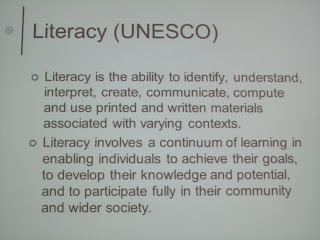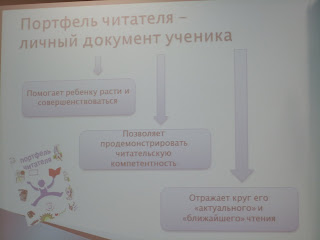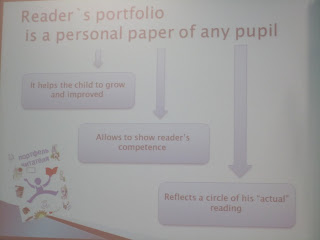I've attended conferences. I've presented at conferences. (I've even helped to plan conferences.) So at the same time that there was nothing new about attending and presenting at the 17th European Conference on Reading in Mons, Belgium, it was like no conference I've ever been involved with!
I met teachers (mostly professors) from Germany, Iceland, Scotland, Russia, Finland, Taiwan...Pennsylvania, and Kansas.
The opening session was given in French, with simultaneous translation (earphones) in English. I felt like I was at the United Nations!
I attended some sessions based on interest (great session on teaching inference to deepen reading comprehension given by 3 presenters from...Kent State University in Ohio!), and I attended other sessions to compare and contrast information (for example, sessions dealing with using children's books given by presenters from Germany, the Netherlands, Taiwan; sessions on digital literacy given by presenters from the US and from Canada, Brazil, and Australia).
The session I attended that best captures the flavor of the conference was one I chose based on interest in the topic, but which was a complete stretch in terms of the language/cultural divide: "The pedagogy of reading: a cross-curricular and multicultural approach" chaired by Tatiana Galaktionova of Russia, and presented by Liliya Mishkina, Svetlana Savvina, and Irina Kozlova of Russia. At the beginning of the session, they asked how many English speakers were in the audience, and as there were a handful of us, they presented in both Russian and English.
The first part of the session was about using a "Reader's Portfolio" as the content for Computer Studies lessons -- teaching about word processing by having students complete a reading passport and reading biography; learning about spreadsheets and graphing while keeping track of books read; creating pages for reading response and reading logs. The next part of the session described an approach that used children's literature as a way to encourage students to engage more deeply in reading. Finally, the third presenter told about a cross-curricular study that was based on Hans Christian Andersen's fairy tales.
At the end of the session, the presenters called for questions. Here's a move I'll try the next time I present -- when there were no questions, they were prepared with questions for the audience! The first presenter asked what else we would suggest be included in a digital reader's portfolio. I suggested an audio or video clip to capture the reader's fluency at several different times in the school year. Well, I guess that having an English-speaker who not only understood their presentation, but was willing to interact with pertinent ideas made some kind of impression -- when the next two presenters asked their questions, they addressed them directly to me! What are some examples of children's literature used in the classrooms in the US? Quick -- explain a classroom filled with 500-1000 children's books and a literature-based reading workshop in a soundbite that translates to Russian!! I fared better on the last question. When asked about cross-curricular studies in the US, I explained that content standards and testing have made those kind of interdisciplinary studies hard/impossible in many places in the US (mumbles of agreement sounded from around the room).
After the session, I stepped across the aisle to ask a Russian participant a question about the role of choice in Russian reading classes. (From the presentations, choice seemed to be limited to choice from a list, or no choice at all.) She understood my question, but didn't have enough English vocabulary to answer it, so while she went off to get a translator to help, I chatted with two teachers from Finland about choice, reading workshop model, and standards.
Big take-away from this session and from the conference: Teachers around the world are more alike than they are different. Also, even if we don't realize it, we are involved in a global conversation about
- diversity -- how do we teach TO differences as resources
- literacy -- critical, multilingual
- literature -- comprehension, for social understanding, for cultural understanding
- teaching in a Digital Age -- digital literacy balanced with text-based literacy, teaching our students (as much as possible) using the digital tools with which they are familiar/comfortable
 |
| United Nations Educational, Scientific, and Cultural Organization (UNESCO) definition of literacy |




Your post has me thinking - first of all what an amazing opportunity to have been a part of and second is realizing as you pointed out that teachers are more the same than different.
ReplyDeleteWhat did you find out about choice in Russian classrooms? Did you find out about read alouds or other shared reading options? Just curious.
Choice in the Russian classrooms seems to be limited to choice from an approved list. But that, like the use of children's literature to engage readers, and the "novelty" of an interdisciplinary unit based on HC Andersen's fairy tales, were being celebrated, so I imagine all are significant shifts.
ReplyDeleteI should just add that the sheer number of high quality children's books we have available here in the US (and at comparatively reasonable prices) are an AMAZING resource that we should never take for granted!!!
Talk about thinking on your feet---luckily, being a teacher prepared you, right? What an awesome opportunity to connect and share and learn.
ReplyDeleteI hope you ate waffles, too. And drank Belgian beer.
Sara,
ReplyDeleteWe ate our fill of frites, waffles, and chocolate, and sampled many wonderful beers!! More pictures to come...
My new Director of Reading (who started just after she returned from Mons) attended and presented at this conference. She had so many wonderful things to report.
ReplyDeleteThanks for sharing your thoughts about it.
Wow, thanks for sharing this experience. I had similar experiences at the thinking conference in Belfast this year. I agree we really are involved in a global conversation in this digital age, here I am in New Zealand conversing with you.
ReplyDeleteI also think that our children are involved in global conversations through digital media, this is something we as teachers need to consider when teaching literacy, comprehension is becoming more vital. So perhaps these global teaching conversations are an important part of our professional development.